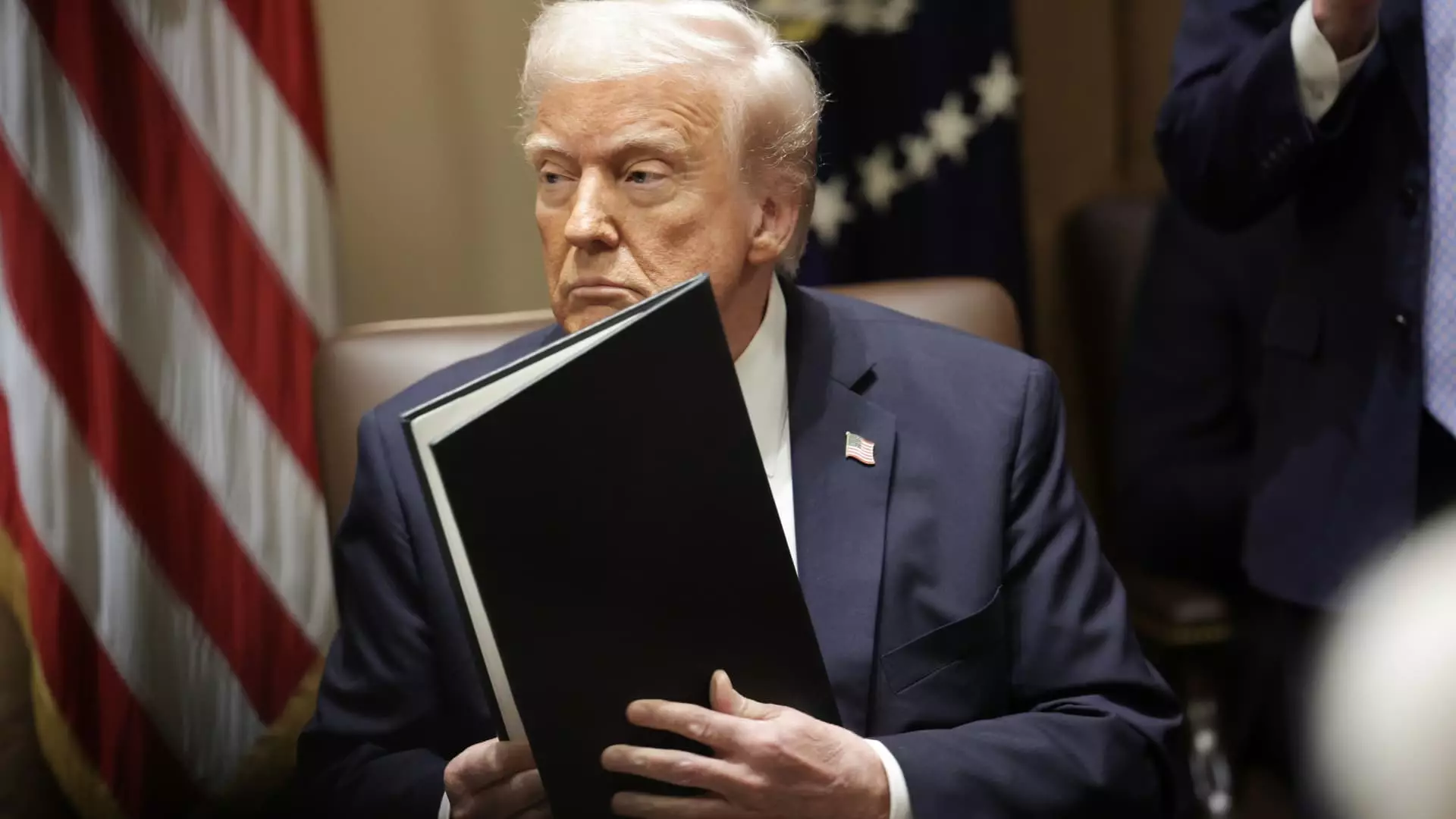When examining President Donald Trump’s impending announcement regarding new tariffs on auto imports, one can’t help but be perplexed by the chaos these decisions sow within the economic landscape. Scheduled for a reveal at 4 p.m. ET in the Oval Office, the substance of this announcement underlines a greater narrative of unpredictability and instability—a breeding ground for anxiety among investors and business leaders alike. This lack of clarity and forethought is hardly the hallmark of a shrewd leader; rather, it exemplifies a reckless approach that threatens to undermine both market stability and international relations.
As the stock market dipped in reaction to Trump’s hints of these tariffs, it became evident that his erratic policy rollouts instigate more panic than reassurance. Business confidence thrives on predictability; without it, companies are caught in a quagmire as they grapple with how to strategize in such turbulent times. When leaders announce sweeping changes without a coherent plan, the consequences can ripple far beyond any initial objectives, penetrating into the very fabric of the economy.
The Tariff Strategy: An Ambiguous Approach
Trump’s “reciprocal tariff” initiative, highlighted as a potential “liberation day,” may sound appealing in theory, but the practical implications beg for scrutiny. The notion that countries with their own import duties on U.S. goods will be subject to tariffs could inadvertently lead to retaliatory measures that could escalate into a vicious trade war. Trump’s administration hints at softer measures on April 2, suggesting a desire for “flexibility” and more “lenient” tariffs. But these last-minute concessions serve merely to perpetuate confusion and uncertainty.
The pitfalls are apparent. If the tariffs are eventually enforced in a way that is softened or poorly-defined, companies left in the lurch for too long might not benefit from any purported “reciprocity.” A disjointed execution of policy could lead to a landscape where businesses are forced to adapt rapidly and erratically, squandering resources that are better spent on innovation than navigating bureaucratic treacle.
Bargaining Power Versus Economic Hostage Taking
Treasury Secretary Scott Bessent’s suggestion that countries can negotiate preemptively to avoid tariffs exemplifies an interesting—and arguably disingenuous—approach to international trade relations. On the one hand, it opens doors for dialogue that could alleviate some immediate tensions; on the other, it also places nations in a position reminiscent of economic hostage situations, where cooperation is coerced under the threat of punitive action.
The threat of tariffs transforms negotiations from a realm of mutual benefit to one of intimidation, which can lead to long-lasting animosity. This ambiguous stance on trade raises the alarm for market analysts and economic planners: How does one plan for an environment steeped in threats rather than collaboration? The very essence of prosperous trade lies in understanding and cooperation, not in wielding punitive measures like a sword of Damocles.
In this fractured environment, the concept of reciprocity is morphed into a tool of coercion. While the intention may be to secure better terms for American consumers and businesses, the reality is that the ramifications of such aggressive tactics could end up cutting deep into the very heart of the economy and leading to unforeseen consequences across industries.


Leave a Reply